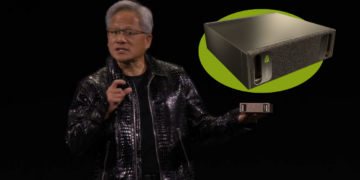What if AI could evolve like a living organism? What if it could create real molecules, test them and improve them on its own, in just a few days? It’s not science fiction, it’s PROTEUS!
In the increasingly crowded landscape of artificial intelligence, this new player stands out for its approach and potential. PROTEUS, a system developed by researchers at the University of Alberta, represents a radical breakthrough in the field of bioengineering.
Unlike traditional AI, which simulates digital scenarios, PROTEUS is an example of biological artificial intelligence: a system that integrates experimental evolution and algorithms to generate real molecules, test them in the laboratory and optimise them through processes inspired by natural selection.
The name itself, inspired by the Greek mythological sea god known for his ability to change shape, perfectly reflects the essence of the project: adaptability and continuous transformation. PROTEUS is designed to tackle one of the most complex challenges in contemporary science — designing molecules with specific functions — by exploiting evolutionary mechanisms and accelerated experimental cycles, made possible by automated synthesis and high-throughput screening platforms.
The technological heart of PROTEUS
The system is based on a direct evolution algorithm, inspired by the Nobel Prize winners for chemistry (Frances Arnold, 2018), which guides the generation and selection of molecular variants in controlled environments. This process uses techniques such as: targeted and random mutagenesis (e.g. error-prone PCR, gene recombination); bacterial or phage display, which allows the molecular function to be linked to the host cell; automated screening, with the ability to analyse thousands of variants per day using fluorescent or colorimetric assays; iterative selection cycles (up to 20 cycles in less than two weeks), which allow for accelerated evolution of desired functions.
The system uses engineered bacteria as a biological chassis, often E. coli strains optimised for the expression of heterologous proteins, and can be integrated with CRISPR systems for fine modulation of genetic variants. The performance of the molecules obtained is evaluated in real time using molecular biosensors or spectroscopy techniques.
Applications and advantages
This methodology allows enzymes, proteins or bioactive compounds to be developed in weeks rather than years. Compared to purely computational models, PROTEUS does not just predict, but experiments and selects directly in the biological world. This guarantees a greater functional robustness in real conditions, a better adaptability to different biochemical environments and a drastic reduction in molecular development costs and time
The system is highly modular and adaptable, making it ideal for sectors such as:
personalised medicine with the development of drugs specific to rare or emerging mutations
green industry, for example by promoting the evolution of high-performance biocatalysts for sustainable industrial processes
environmental bioremediation designing proteins for the degradation of pollutants
advanced diagnostics: creating biosensors for rapid and specific detection of pathological biomarkers
A new frontier: hybrid intelligence
But the value of PROTEUS is not limited to speed. It is its ability to learn and evolve that opens up previously unthinkable scenarios: a hybrid system, where human intelligence, evolutionary algorithms and molecular biology merge to generate innovation. The results obtained so far show that this approach can exceed the predictive capabilities of purely in silico models, especially in highly complex and dynamic contexts.
Looking to the future, the potential applications are vast. There is already talk of evolutionary vaccines against emerging pathogens, thermostable enzymes for industrial processes, and intelligent biodegradable materials. And because PROTEUS operates with natural evolutionary mechanisms, it is also more compatible with circular and sustainable production models.
In an age where artificial intelligence seems to dominate every field, PROTEUS reminds us that nature itself is a form of evolved intelligence, from which we can learn to design more efficiently, sustainably and innovatively. This “biological intelligence” opens up a new era for molecular innovation, where the boundary between science, evolution and technology is becoming increasingly blurred.



































